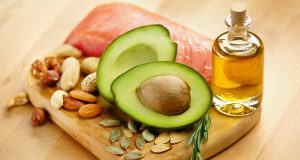Are you a coffee lover? If not, you may want to give that cup o’ Joe a second look, especially if you’re a type II diabetic. New research has revealed one way in which the caffeine in coffee helps to control high blood sugar.
It starts with receptors, which are proteins that perch on the surface of our cells. These receptors react only to specific types of molecules. Think of it like this – only the correct key can open the lock on your front door. When the receptor encounters the right molecule, a reaction occurs inside the cell.
In the case of coffee, when the cell receptors encounter caffeine, ‘synthetic human glucagon-like peptide 1’ is produced. This peptide lowers blood sugar, so well in fact, that it is an ingredient in many diabetes prescription medications. In the study, mice whose cells received and reacted to the caffeine demonstrated “substantially improved” glucose control compared to the control group who was not given caffeine.
Isn’t that amazing – caffeine helps to lower blood sugar! So, exactly how much coffee are we talking about here? According to the Mayo Clinic, up to 400 milligrams of caffeine per day appears to be safe for healthy adults. One 8 oz cup of coffee contains 75-100 mg of caffeine.
That means we should consume no more than 4 cups of coffee per day. If we consume more than those 400 mg of caffeine daily, symptoms can range from insomnia to irritability. Upset stomach, muscle tremors, and elevated heart rate can also occur.
Are you a ‘one and done’ coffee drinker, or do you need all four of those daily cups to function? Thanks to their genes, some people are simply better at metabolizing caffeine. For example, some people can down an espresso after dinner and sleep soundly all night, while others get the jitters all day from a single cup with breakfast.
In moderation, there are several health benefits to drinking coffee. Coffee drinkers can enjoy an 80% reduction in risk for liver cirrhosis (chronic liver damage.) Coffee consumption also increases adrenaline production, meaning it can also maximize your workouts!
Speaking of workouts, could caffeine help you lose weight? Research has found that caffeine can boost metabolism by between 3-11%. Other studies show that caffeine can increase the body’s fat-burning power, by as much as 10% in overweight individuals and as much as 29% in lean individuals.
Drinking coffee could also lengthen your life! New research has found that drinking coffee lowers risk of death and development of heart disease. In the study, the largest reduction in relative risk of death was for participants who consumed three cups of coffee per day compared with non-coffee drinkers. (Drinking more than three cups was not associated with any additional health benefits.)
That longer life could also be a more enjoyable one thanks to coffee. Research has found that drinking coffee in the morning is tied to increased levels of energy, as well as feelings of kindness and pleasure. Coffee enjoyed with friends or family is connected to feelings of affection, friendship, and satisfaction. Even when had only occasionally, a cup of coffee brings on calm and tranquility.
This positive reputation is quite a turnaround for coffee. Did you know that coffee used to be included on the World Health Organization’s list of potentially carcinogenic foods? It was removed in 2016, and just look at where research has brought coffee now in 2017 – with scientific evidence of health benefits.
One important thing to remember: Most of the studies in people and animals have used black coffee, rather than sugary, milky concoctions. The excess calories and ridiculous amounts of sugar contained in a Double Mocha Frappuccino, for example, completely offset any benefits the coffee itself may convey. Black coffee, and bulletproof coffee, are the preferred ways to consume your caffeine to reap maximum benefits to blood sugar.
So there you have it, coffee in moderation not only keeps your energy running higher, but can help to keep your blood sugar lower. Whether it’s black or bulletproof, hot or iced, coffee is a beatific beverage for those working to achieve and maintain lower blood sugar.
Source:
https://www.medicalnewstoday.com/articles/322261.php
http://www.diabetesforecast.org/2016/jul-aug/can-a-cup-of coffeeprevent.html?loc=dorg_recentadv
 Diabetic Kitchen
Diabetic Kitchen





What about the caffine in Tea, I drink some tea but I detest coffee
Caffeine is caffeine whether it’s found in coffee, tea or chocolate. However, you have to drink a lot more tea or eat a lot of chocolate to get the equivalent that’s found in coffee.
I am a pancreatic cancer survivor diabetic — now for 22 years!
I KNOW for a fact caffeine raises my blood sugar significantly. Even decaf coffee, which I drink, raises it about 100. It will eventually come down, because it is a false high, BUT it would be 400 or more if I drank that much coffee.
You might need to research this some more!